L’Enfer (1994)
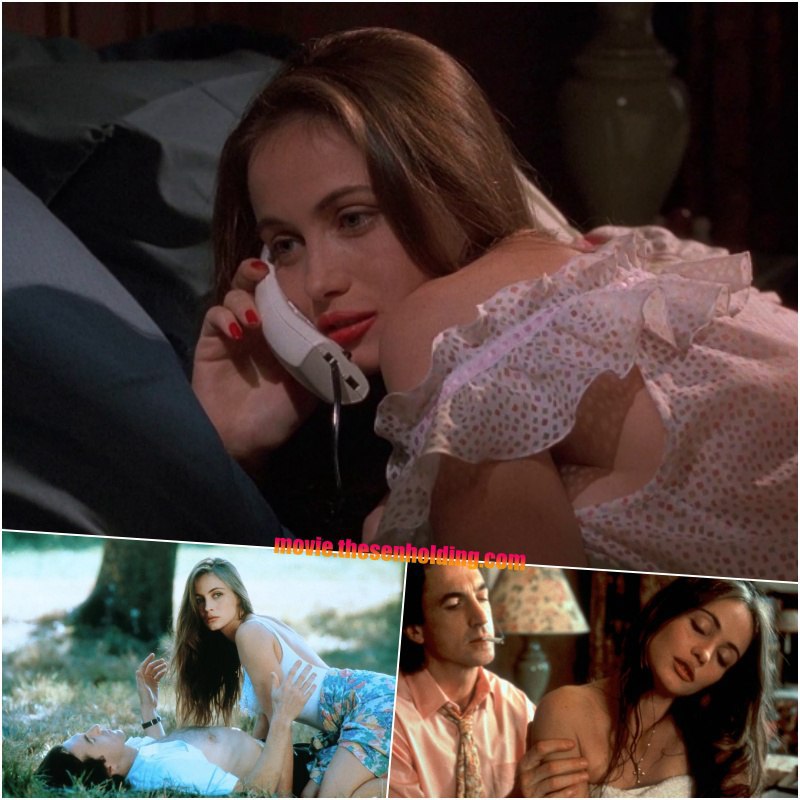
Introduction to the Film L’Enfer (1994) – Claude Chabrol’s Psychological Masterpiece
L’Enfer (titled Hell in English, 1994) is a gripping French psychological drama directed by Claude Chabrol, a prominent figure of the French New Wave (Nouvelle Vague) movement. Starring the talented Emmanuelle Béart and François Cluzet, this film transcends a mere tale of love and marriage, delving into a profound exploration of obsession, jealousy, and the darkest corners of the human psyche. Based on an original screenplay by Henri-Georges Clouzot, L’Enfer is a haunting work that blends sophisticated storytelling with stunning visuals, keeping viewers captivated from start to finish.
Basic Information
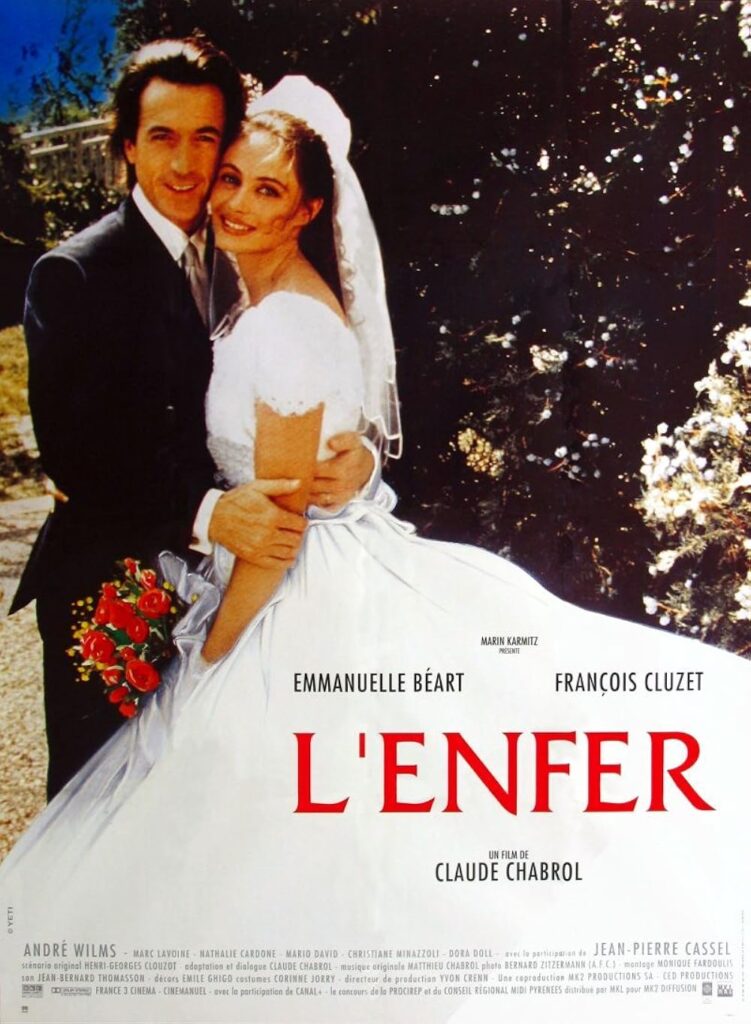
- Director: Claude Chabrol
- Screenplay: Claude Chabrol (based on the original screenplay by Henri-Georges Clouzot)
- Main Cast:
- François Cluzet as Paul Prieur
- Emmanuelle Béart as Nelly Prieur
- Marc Lavoine as Martineau
- Genre: Psychological, Drama, Mystery
- Runtime: 102 minutes
- Country: France
- Language: French
- Release Date: February 16, 1994 (France)
- Production Companies: MK2 Productions, France 3 Cinéma
- Ratings:
- IMDb: 7.0/10
- Rotten Tomatoes: 88% (based on critic reviews)
Plot Summary
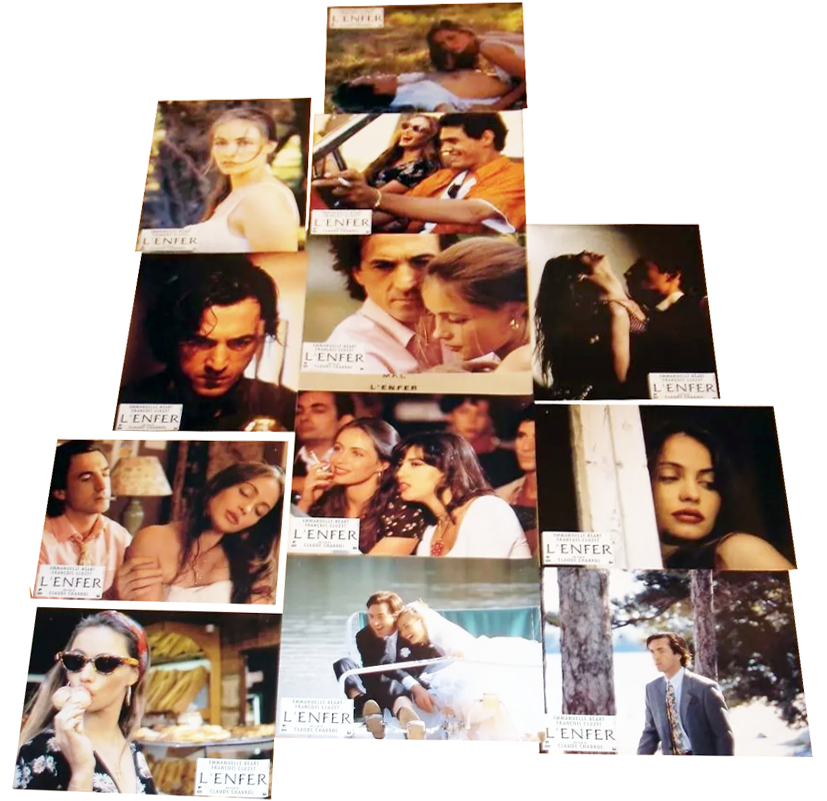
L’Enfer follows the story of Paul Prieur, a middle-aged man who owns a small hotel in rural France. On the surface, Paul’s life seems idyllic: he has a beautiful wife, Nelly, and an adorable child. However, cracks begin to appear in this façade of happiness when Paul starts to suspect Nelly of infidelity. What begins as mild jealousy soon spirals into an all-consuming obsession, plunging Paul into a vortex of doubt, paranoia, and uncontrollable behavior.
The film opens with serene moments of married life, but as time progresses, Paul’s perspective becomes increasingly distorted as he misinterprets Nelly’s every action. Masterfully constructed scenes shift between reality and the dark fantasies conjured in Paul’s mind, blurring the line between truth and delusion for the audience. Nelly, with her captivating yet enigmatic presence, becomes the focal point of Paul’s emotional turmoil. Is Paul destroying his own happiness with baseless suspicions, or is Nelly truly hiding something?
The narrative of L’Enfer is not just a personal tragedy but a profound study of human psychology, examining how distrust and fear can unravel even the strongest relationships.

Production Background
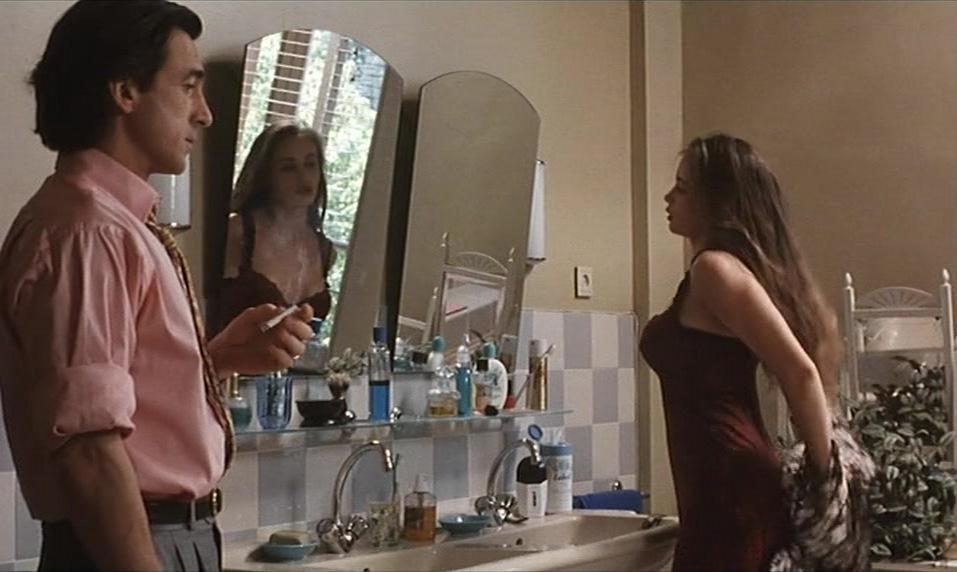
L’Enfer was originally a project conceived by legendary director Henri-Georges Clouzot, who planned to film it in 1964 with actress Romy Schneider in the lead role. However, the project was abandoned due to Clouzot’s health issues and financial difficulties. Claude Chabrol revived Clouzot’s original screenplay in 1994, infusing it with his distinctive style.
Chabrol, renowned for exploring the darker aspects of the bourgeoisie, transformed L’Enfer into a work that bore his unique imprint. While staying true to the spirit of Clouzot’s script, he introduced modern elements and a more nuanced psychological approach, aligning with his filmmaking philosophy.
Highlights of the Film
- Outstanding Performances:
- François Cluzet delivers an emotionally charged performance as Paul, portraying his descent from a loving husband to a man blinded by jealousy. Cluzet’s intensity evokes both empathy and dread as his character unravels.
- Emmanuelle Béart shines as Nelly, a wife who is both alluring and mysterious. Béart skillfully balances innocence and ambiguity, leaving viewers questioning her true intentions.
- Storytelling and Cinematography:
Chabrol employs creative camera angles and contrasting colors to mirror Paul’s psychological state. Subjective shots from Paul’s perspective, paired with the haunting score by Matthieu Chabrol (the director’s son), create a tense, claustrophobic atmosphere. Scenes of Paul’s imagined scenarios are interwoven with reality, heightening the sense of unease and ambiguity. - Profound Themes:
Beyond jealousy, the film explores broader themes such as the fragility of happiness, the destructive power of paranoia, and how individuals create their own “hell” within their minds. The title L’Enfer (Hell) symbolizes not only Paul’s suffering but also the mental imprisonment of his own making. - Claude Chabrol’s Signature Style:
A master of psychological character studies, Chabrol makes L’Enfer both an entertaining thriller and a work of art. He uses elements of the psychological drama genre to captivate audiences while embedding social commentary on marriage, trust, and control.
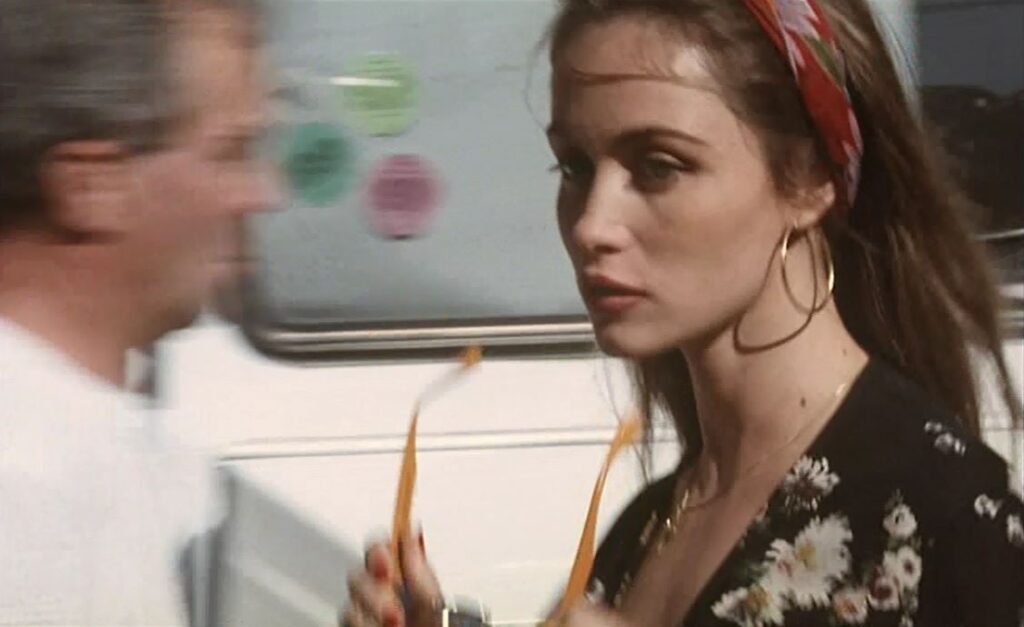
Significance and Impact
L’Enfer stands as one of Claude Chabrol’s defining works from the later phase of his career, showcasing his ability to craft complex psychological narratives. The film earned critical acclaim and resonated with audiences for its raw and haunting portrayal of human conflict.
Often compared to other Chabrol classics like La Cérémonie (1995) or Le Boucher (1970), L’Enfer distinguishes itself with its deep dive into the protagonist’s mental collapse. It serves as a reminder of the importance of trust and communication in relationships, while warning of the consequences when fear and doubt take over.
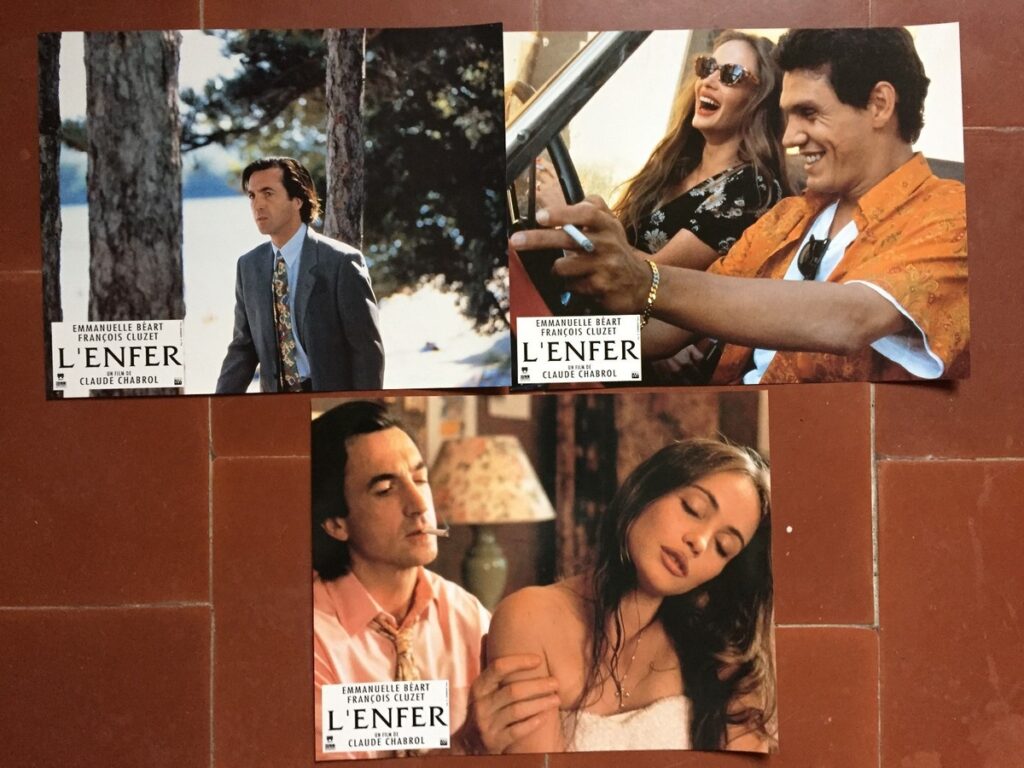
Why You Should Watch L’Enfer
- If you enjoy psychological dramas with compelling plots and stellar performances, L’Enfer is a must-see.
- The film is a prime example of Claude Chabrol’s filmmaking, blending cinematic artistry with profound psychological insight.
- For those interested in themes of marriage, jealousy, and the human psyche’s darker side, L’Enfer offers a thought-provoking experience.
- Stunning visuals, a haunting soundtrack, and a surprising narrative will keep you hooked from beginning to end.
Where to Watch L’Enfer
Currently, L’Enfer (1994) is available on select streaming platforms such as Criterion Channel, MUBI, or rental services like Amazon Prime (depending on your region). You can also find DVD/Blu-ray editions from distributors like MK2 or Criterion Collection for the best viewing quality.
Conclusion
L’Enfer (1994) is more than a film about jealousy and paranoia; it is a cinematic exploration of the deepest recesses of the human soul. With Claude Chabrol’s masterful direction, exceptional performances, and a gripping storyline, this film stands as one of the finest works of 1990s French cinema. Take the time to immerse yourself in the psychological “hell” Chabrol has crafted—you won’t be disappointed!